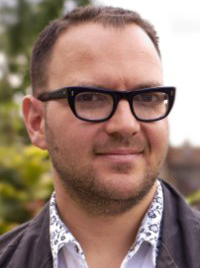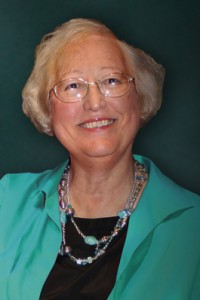Cory Doctorow: Breaking In

When I was a baby writer, I obsessively collected career advice from established writers, reading books and essays and attending panels on ‘‘How I broke in’’ featuring established pros. It’s a testament to the irrational, burning desire to publish that I continued to do this long after it became apparent that there was nothing of contemporary applicability in these discussions.
I mean, it was entertaining to hear a writer describe how they’d sold their first story by typing it up, separating the carbons, putting the manuscript in an envelope, and riding the C train all the way to the office of John W. Campbell’s Astounding on 42nd Street, hurling the manuscript over the open transom over his door so it would be the first thing he saw when he arrived the next morning.
John W. Campbell died a week before I was born, though (and he wouldn’t have published me anyway because he was a cryptofascist). What’s more, transoms had been rendered obsolete by the widespread deployment of central air-conditioning. Also, I lived in Toronto, and I couldn’t catch the C train without first clearing US immigration and then flying to New York City.
I broke in anyway, nearly a quarter century ago, when Gardner Dozois’s Asimov’s became my first professional publication. By then, I was encyclopedic on the subject of breaking into the field. Thanks to online forums and writers’ groups, I could name every single major SF publication, their editors, word rates, and response times. I could tell you whether their contracts were negotiable, and, if so, which clauses could be struck out. I could name every major agent who was open to new clients and every book editor who was willing to read unsolicited novels.
Today, I know none of that stuff. And, thanks to my tiny modicum of self-awareness, I know enough to know how little I know, and am able to tell writers who ask me for advice on how to break into the field that I am the last person they should be talking to, because while I still have an encylopedic knowledge of the editorial peccadilloes of dozens of publications, most of them no longer exist, and the ones that do have been radically transformed in the intervening decades.
All I can offer is meta-advice: advice on where to seek advice. Namely, writers seeking to break into the field should be seeking out other writers who are seeking to break into field. Pool your knowledge, share your scraps of market intelligence and gleanings from rejection letters. Just as a writers’ critiquing circle should consist of writers of similar ability, so too should a writers’ professional support circle consist of writers at similar places in their careers.
The methodology articulated by Heinlein (‘‘Write; finish what you write; refrain from rewriting unless to editorial order; put it on the market; keep it on the market’’) is still sound enough (though no revision is probably as bad for your work as endless revision). More practically:
1) Note where works that are comparable to your own were published recently;
2) Research the editorial guidelines and word rates for those markets;
3) In descending order of pay-scale, submit your stories to those markets, according to the submission guidelines for each;
4) Keep writing.
It would be wonderful if there was a path you could follow from the yen to write, to having written, to being published, but that path doesn’t exist. Writers blaze their own trails, finding mentors or not, getting lucky or not, agonizing and working and reworking, finding peers and lifting each other up.
That is not to say that established writers have nothing to offer to writers who are just starting out. We do. When I reflect on the professionals who were kind to me when I was struggling to sell my first story, I remember clearly how important were their acts of kindness and consideration.
I was incredibly, stupendously lucky to grow up in Toronto in the 1980s, a place and time that was as close to perfect for a would-be science fiction writer as you could hope for, mostly thanks to the good graces of Judith Merril, the titan of SF writing, editing, and criticism.
Judy left the US in 1968 out of disgust with the violent suppression of the anti-war movement. She settled in Toronto and fell into radical antiwar circles there, circles that included my parents. She immediately set about establishing a beachhead for SF in the city.
Among other things, Judy hosted the weekly Doctor Who broadcasts on TV Ontario, our local public broadcaster. I have clear memories of watching her introductions with my father on the nights when my mom was at night school, finishing her Master’s. Judy would frame each week’s episode in light of the traditions of SF, the tropes she and her friends invented at the dawn of the field.
When I was ten years old or so, my school took a trip to the Spaced Out Library (now called the Merril Collection), the public SF reference collection Judy established with the books she brought with her from the US when she went into voluntary exile. Judy was the library’s writer in residence and she let us elementary school students know that we could bring her our manuscripts and she’d give us advice on improving them. I had a subway pass and soon I was printing off fanfold, dot-matrix manuscripts from my home Apple //c and bringing them to Judy for critiques.
Charlie McKee was a Toronto SF fan whom Judy convinced to found Bakka, the first science fiction bookstore in the country – and the second in the world. By the time I discovered it in the early 1980s, the store was owned by John Rose. My first visit was also part of a school trip, again about the age of 10, and I had one dollar to my name. A young woman named Tanya Huff was working behind the counter, and she listened attentively as I told her which books I’d enjoyed, then led me back to the used section and found me a copy of H. Beam Piper’s Little Fuzzy for precisely $1. I still have it.
Tanya began to sell – short stories, then novels – and she, too, let me bring her manuscripts for patient (but unflinching) critiques. When she quit her job to write full time, I took over from her at Bakka (the store is called Bakka-Phoenix now, and it’s still in business).
Working at Bakka meant that I started attending the Toronto Hydra meetings: this was a movable feast for SF professionals that had started in NYC, which Judy had imported to Toronto. Every six weeks, we’d have beer and potluck at a different home, meeting with writers, editors, critics, artists, and, notably, the producers of Prisoners of Gravity, an SF digest show that aired on TV Ontario, the same public broadcaster where Judy had introduced the weekly Doctor Who episode. I began to consult for PoG as well.
Around this time, I joined the Cecil Street Irregulars, a critiquing circle that Judith Merril had started by introducing several of the writers who’d been bringing her stories to one another. That workshop continues to this day, with David P. Nickle, Karl Schroeder, Madeline Ashby, Natalie Zina Walschots, Hugh Spencer, Allan Weiss, and many others. I found the format familiar, because it followed the same format as the workshop at my high-school. That’s not a coincidence: Judy set up that workshop, too – through a writers-in-the-school grant.
Judy delivered mentorship both wholesale and retail, creating institutions that outlasted her and also tailoring encouragement and advice to all comers, even fifth graders with subway passes.
I can’t claim to have matched her level of generosity and encouragement (I don’t think anyone can claim that), but there were so many writers I met on the way, even glancingly, whose encouragement made a tremendous difference. Edward Llewellyn and Ed Greenwood, who spoke at my D&D camp and made a point of egging me on when I told them I was a budding writer; Parke Godwin, who was the guest of honor at a local con where I volunteered as a gopher, who accepted a coffee from me and then took a moment to talk to me about my aspirations.
Established writers know nothing useful about breaking into the field today. But we do have a powerful tool for helping out new writers: encouragement. The specifics of breaking in change enormously from year to year, but one thing remains eternal: breaking in is hard, and it’s easy to get discouraged. The kindnesses we show to would-be writers are worth far more than any list of markets or tips on writing cover letters.
Cory Doctorow is the author of Walkaway, Little Brother, and Information Doesn’t Want to Be Free (among many others); he is the co-owner of Boing Boing, a special consultant to the Electronic Frontier Foundation, a visiting professor of Computer Science at the Open University and an MIT Media Lab Research Affiliate.
All opinions expressed by commentators are solely their own and do not reflect the opinions of Locus.
This article and more like it in the September 2021 issue of Locus.
 While you are here, please take a moment to support Locus with a one-time or recurring donation. We rely on reader donations to keep the magazine and site going, and would like to keep the site paywall free, but WE NEED YOUR FINANCIAL SUPPORT to continue quality coverage of the science fiction and fantasy field.
While you are here, please take a moment to support Locus with a one-time or recurring donation. We rely on reader donations to keep the magazine and site going, and would like to keep the site paywall free, but WE NEED YOUR FINANCIAL SUPPORT to continue quality coverage of the science fiction and fantasy field.
©Locus Magazine. Copyrighted material may not be republished without permission of LSFF.






